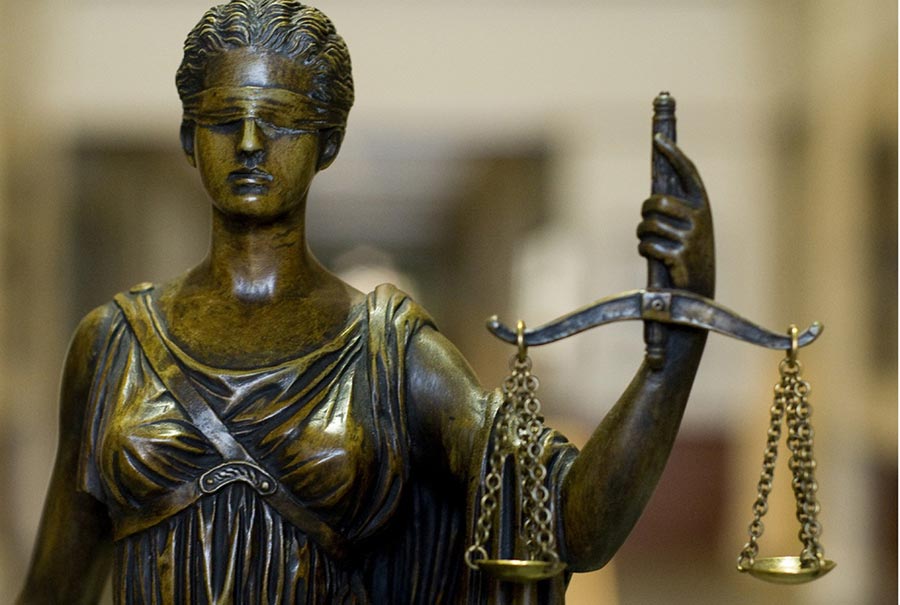Jeffrey J. Marsalis filed a rebuttal brief last month, hoping to persuade a three-judge panel to grant him a new trial for sex crimes he allegedly committed in Philadelphia, prior to raping a lesbian in Idaho.
In 2007, Marsalis was convicted of sexually assaulting three local women. Prior to his convictions, while out on bail, he traveled to Idaho and raped a lesbian. Marsalis allegedly drugged his victims before assaulting them, but he maintains his innocence.
Marsalis’ request for a new trial is pending before state Superior Court judges John T. Bender, Judith F. Olson and William H. Platt.
In December, the Philadelphia District Attorney’s Office filed a lengthy brief urging the judges to keep Marsalis behind bars.
In his Feb. 19 rebuttal brief, Marsalis called for the D.A.’s Office to be “censured,” due to alleged prosecutorial misconduct.
Marsalis said the D.A.’s Office continues to accuse him of drugging women prior to raping them, even though he was acquitted of illegally administering drugs.
“This court is not a forum for the [D.A.’s Office] to retry its case against [Marsalis] for charges for which he was acquitted,” Marsalis’ brief states.
Marsalis also blasts the D.A.’s Office for allegedly introducing inflammatory and irrelevant evidence to tarnish his reputation.
“The [D.A’s Office] makes repeated adverse references to [Marsalis’] financial status, academic performance and testimony as introduced during the course of trial, which in the [D.A.’s] apparent view, suggests [Marsalis’] guilt in relation to charges in which [Marsalis] was acquitted — specifically those relating to the allegations that [Marsalis] drugged the complainants prior to engaging in sexual intercourse — which [Marsalis] maintained, and the jury largely found, to be consensual.”
Marsalis said the D.A.’s reliance on irrelevant and inflammatory evidence is unethical.
“These references have nothing to do with the factual and legal issues in question in the instant appeal,” the brief asserted.
Marsalis also faulted the D.A.’s Office for arguing he isn’t entitled to an evidentiary hearing to help demonstrate his innocence. Marsalis said he can prove he was in Idaho on Jan. 2, 2004, when he was convicted of sexually assaulting a woman in Philadelphia.
He said the D.A.’s Office is trying to prevent the truth from coming out by arguing against an evidentiary hearing.
Marsalis also claimed the D.A.’s Office was wrong to fault him for not submitting sworn affidavits from witnesses willing to testify on his behalf at an evidentiary hearing. Marsalis said there’s no legal requirement to provide such affidavits.
If the jury had been permitted to consider Marsalis’ alibi evidence, the outcome of his 2007 trial would have different, Marsalis contended
“[T]he jury was deprived of evidence showing that on the date A.A. claimed [Marsalis] raped and sexually assaulted her, [Marsalis] was in Park City, Utah, with his father, celebrating the New Year’s holiday,” Marsalis brief states.
Marsalis also renewed his request for the D.A.’s Office to be disqualified from the case, citing his wrongful prosecution for allegedly raping a local assistant district attorney.
“The Philadelphia District Attorney’s Office should be disqualified from participating in future proceedings in a prosecutorial capacity,” Marsalis’ brief states.
But in court papers, the D.A.’s Office denied any wrongdoing in the matter and declined to disqualify itself.
Marsalis, 42, remains incarcerated at a state prison in Marienville.
He’s eligible to apply for parole next year. If released, he’s expected to serve a 14-year prison sentence in Idaho for raping a lesbian in that state, according to court records.
